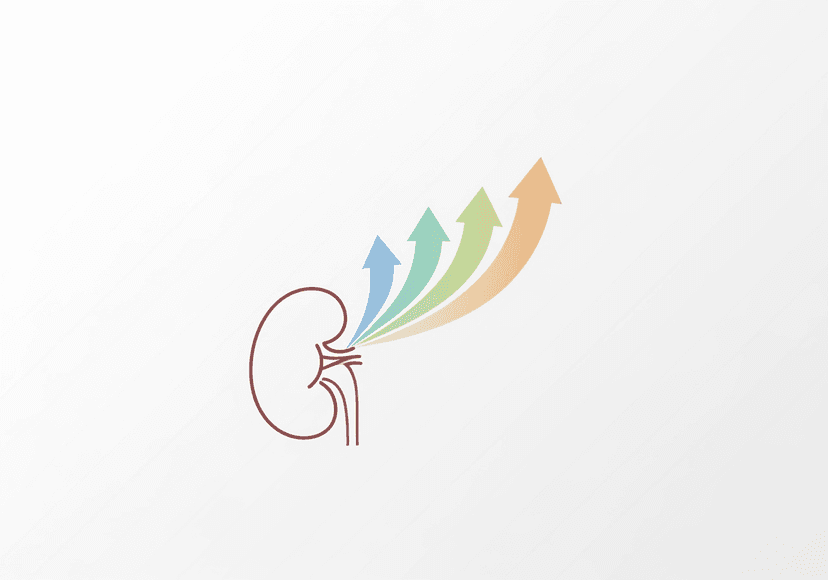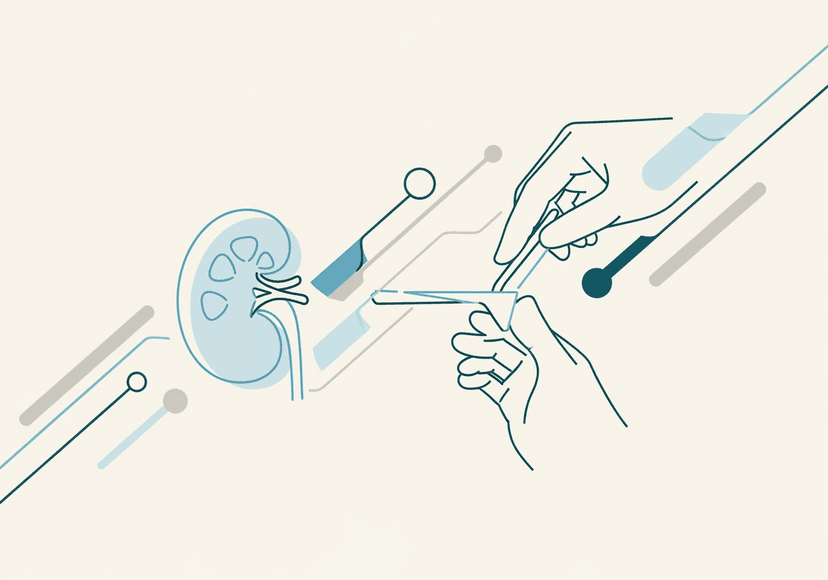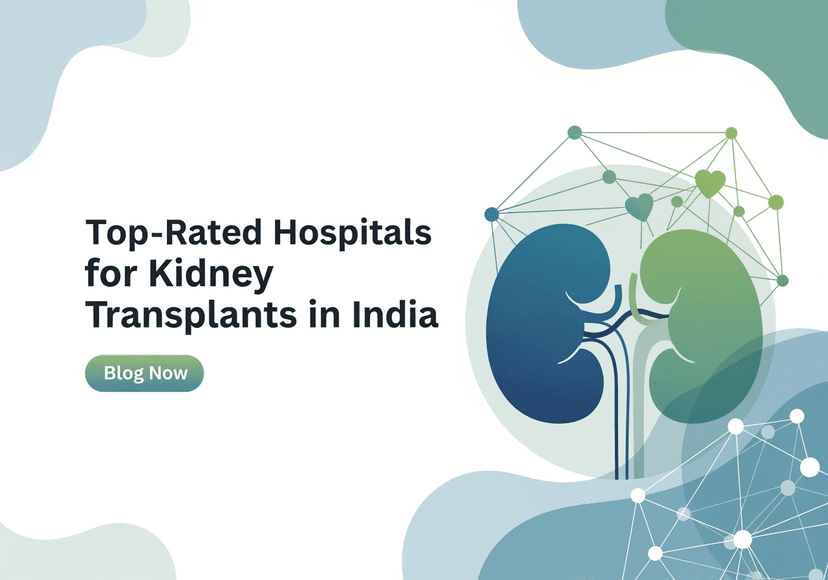
Healthtrip Experts Explain the Complete Neuro Surgery Process
30 Oct, 2025
 Healthtrip
Healthtrip- Understanding Neurosurgery: When is it Necessary?
- Where To Seek Treatment: Top Hospitals for Neurosurgery
- Fortis Escorts Heart Institute
- Fortis Shalimar Bagh
- Memorial Bahçelievler Hospital
- Memorial Sisli Hospital
- LIV Hospital, Istanbul
- Hisar Intercontinental Hospital
- NPISTANBUL Brain Hospital
- The Neurosurgery Team: Who You'll Meet
- Pre-Operative Procedures: Preparing for Neurosurgery
- Surgical Techniques: A Glimpse into the Operating Room
- Post-Operative Care and Rehabilitation: The Road to Recovery
- Examples of Neurosurgery: Treating Specific Conditions
- Risks and Complications: Awareness is Key < li>Conclusion: Empowering You on Your Neurosurgery Journey
Initial Consultation and Evaluation
Neuro surgery begins with a comprehensive consultation with a neurosurgeon. This initial meeting is crucial for the doctor to understand your medical history, current symptoms, and overall health. Be prepared to discuss everything from past illnesses and medications to any relevant family history. The neurosurgeon will perform a thorough neurological examination, assessing your reflexes, muscle strength, balance, coordination, and cognitive function. It’s vital to be open and honest during this consultation, as it lays the foundation for accurate diagnosis and treatment planning. Based on the initial assessment, the neurosurgeon may recommend further diagnostic testing to get a clearer picture of your condition. Healthtrip facilitates connections with leading neurosurgeons at facilities like Fortis Hospital, Noida, ensuring you receive a thorough evaluation and personalized care plan. Don't hesitate to ask questions; understanding your condition and treatment options is key to feeling empowered.Most popular procedures in India
Diagnostic Testing
Once the initial consultation is complete, diagnostic tests play a critical role in pinpointing the exact nature and location of the neurological issue. Common imaging techniques include Magnetic Resonance Imaging (MRI), which provides detailed images of the brain and spinal cord; Computed Tomography (CT) scans, using X-rays to create cross-sectional images; and Electroencephalography (EEG), measuring brain electrical activity. Other tests might include nerve conduction studies to assess nerve function and angiography to visualize blood vessels in the brain. These tests help the neurosurgeon determine the best course of action, whether it be medication, physical therapy, or surgery. Healthtrip can coordinate these diagnostic tests at state-of-the-art facilities like Quironsalud Hospital Murcia, ensuring accurate and timely results. The results of these tests are carefully reviewed to create a tailored treatment plan that addresses your unique needs, giving you the best possible outcome.Pre-operative Preparation
If surgery is deemed the best option, the pre-operative phase is essential for ensuring a smooth procedure and recovery. This involves a thorough medical evaluation, including blood tests, an electrocardiogram (ECG) to assess heart function, and possibly a consultation with an anesthesiologist to discuss anesthesia options and potential risks. You'll receive detailed instructions on what to eat or drink before surgery, which medications to continue or discontinue, and what to expect on the day of the procedure. It's incredibly important to follow these instructions precisely to minimize complications. You may also be advised to make lifestyle adjustments, such as quitting smoking or losing weight, to improve your overall health and surgical outcome. Healthtrip offers pre-operative support, including assistance with understanding instructions and arranging logistics, ensuring you are fully prepared both physically and mentally. Facilities such as Yanhee International Hospital typically have pre-op programs in place.Wellness Treatments
Give yourself the time to relax
Lowest Prices Guaranteed!

Lowest Prices Guaranteed!
The Neuro surgery Procedure
The neurosurgery procedure itself varies widely depending on the specific condition being treated and the surgical approach. Advances in technology have led to minimally invasive techniques, which involve smaller incisions, less pain, and faster recovery times. These techniques often utilize endoscopes and specialized instruments to access and treat the affected area with greater precision. Traditional open surgery may be necessary in more complex cases, allowing the neurosurgeon to have a direct view and access to the brain or spinal cord. During the surgery, a team of highly skilled professionals, including neurosurgeons, anesthesiologists, nurses, and technicians, work together to ensure the best possible outcome. Healthtrip partners with hospitals such as Vejthani Hospital, known for their cutting-edge neurosurgical technologies and experienced surgical teams, ensuring you receive the highest standard of care. The surgical procedure is meticulously planned and executed, with constant monitoring to ensure your safety and well-being.Post-operative Care and Rehabilitation
Following the neurosurgery, the post-operative care and rehabilitation phase is crucial for optimal recovery. You'll be closely monitored in the hospital, and pain management strategies will be implemented to keep you comfortable. As you recover, a team of physical therapists, occupational therapists, and speech therapists may be involved to help you regain lost function and adapt to any changes. Rehabilitation programs are tailored to your specific needs and may include exercises to improve strength, balance, coordination, speech, and cognitive function. Adhering to the rehabilitation plan is essential for maximizing your recovery and achieving the best possible long-term outcome. Healthtrip can arrange for post-operative rehabilitation services at facilities like NMC Specialty Hospital, Al Nahda, Dubai, or closer to home, ensuring seamless continuity of care. Remember, recovery is a journey, and with the right support and dedication, you can regain your independence and improve your quality of life. < p>Understanding Neurosurgery: When is it Necessary?
Neurosurgery, often perceived as a highly complex and specialized field, deals with the diagnosis and treatment of conditions affecting the brain, spinal cord, peripheral nerves, and their supporting structures. But when exactly is it deemed necessary? Well, it's not just for dramatic, life-or-death scenarios that you see on TV! Neurosurgery encompasses a surprisingly broad spectrum of conditions, ranging from chronic pain management to the removal of tumors. Think of it as the ultimate problem-solver for those intricate and delicate parts of your body that control everything from your thoughts and movements to your senses and overall well-being. The decision to pursue neurosurgery is never taken lightly. It's a collaborative process involving neurologists, neurosurgeons, and, most importantly, the patient. A variety of factors come into play, including the severity of the condition, its impact on your quality of life, and the potential benefits and risks associated with surgical intervention. Sometimes, non-surgical treatments like medication, physical therapy, or injections might be sufficient to manage the condition. However, when these conservative approaches fail to provide adequate relief, or when the condition poses an immediate threat to your neurological function, neurosurgery may be considered as the most viable option. It's about weighing all the options and choosing the path that offers the best chance of restoring your health and getting you back to feeling like yourself again. At Healthtrip, we understand that considering neurosurgery can be overwhelming. That's why we're here to provide you with the information and resources you need to make informed decisions and connect you with the best specialists in the field.
Where To Seek Treatment: Top Hospitals for Neurosurgery
Choosing the right hospital for neurosurgery is a crucial step, and it's one that shouldn't be taken lightly. It's about finding a facility with a proven track record, a team of experienced neurosurgeons, and access to cutting-edge technology. After all, you want to put your health in the hands of the best, right? A top-notch neurosurgery hospital boasts a multidisciplinary approach, bringing together specialists from various fields – neurology, radiology, oncology, and rehabilitation – to provide comprehensive care. They are also committed to staying at the forefront of medical advancements, utilizing minimally invasive techniques and innovative technologies to improve outcomes and reduce recovery times. Furthermore, patient-centered care is paramount. The best hospitals prioritize communication, ensuring that you and your family are fully informed and actively involved in every step of the treatment process. They create a supportive and compassionate environment, recognizing that emotional well-being is just as important as physical healing. Navigating the world of healthcare can be challenging, especially when you're facing a serious medical condition. That's where Healthtrip comes in. We've carefully curated a network of leading hospitals and neurosurgery experts around the globe, making it easier for you to find the right fit for your individual needs. We understand that every patient is unique, and we're committed to providing personalized support and guidance throughout your journey. Choosing a hospital is a personal, sensitive decision, and we at Healthtrip, aim to make this process as smooth as possible for you.
Fortis Shalimar Bagh
Fortis Shalimar Bagh, located in Delhi, India, is renowned for its comprehensive neurosurgery department, equipped with state-of-the-art technology and a team of highly skilled neurosurgeons. They offer a wide range of neurosurgical procedures, including minimally invasive spine surgery, brain tumor surgery, and vascular neurosurgery. Fortis Shalimar Bagh is committed to providing patient-centric care and ensuring the best possible outcomes.
Memorial Bahçelievler Hospital
Located in Istanbul, Turkey, Memorial Bahçelievler Hospital is a leading medical institution known for its advanced neurosurgery department. The hospital boasts a team of experienced neurosurgeons who specialize in a wide range of procedures, including complex brain tumor resections, spinal fusions, and deep brain stimulation. Memorial Bahçelievler Hospital is committed to utilizing the latest technologies and techniques to ensure the best possible outcomes for its patients.
Memorial Sisli Hospital
Memorial Sisli Hospital, another prominent facility in Istanbul, Turkey, is also highly regarded for its neurosurgery services. The hospital's neurosurgery department is equipped with cutting-edge technology and staffed by a team of skilled and experienced neurosurgeons. They offer a comprehensive range of neurosurgical procedures, addressing conditions such as brain tumors, spinal disorders, and peripheral nerve injuries. Memorial Sisli Hospital prioritizes patient safety and comfort, providing personalized care and support throughout the treatment journey.
LIV Hospital, Istanbul
LIV Hospital in Istanbul is a multi-specialty medical center that is committed to providing the best healthcare facilities. Their Department of Neurosurgery applies a multidisciplinary approach, making use of advanced technology and techniques to treat a variety of conditions. LIV Hospital aims to provide effective treatment and comfort to its patients.
Hisar Intercontinental Hospital
Also situated in Istanbul, Hisar Intercontinental Hospital is a well-known medical institution that offers a complete range of medical services. Their neurosurgery department delivers comprehensive care in the diagnosis and treatment of neurological conditions, with a focus on patient well-being.
NPISTANBUL Brain Hospital
NPISTANBUL Brain Hospital, located in Istanbul, Turkey, is a specialized hospital dedicated to neurological and psychiatric disorders. Their neurosurgery department utilizes a multidisciplinary approach, incorporating advanced technologies and techniques to provide comprehensive care for patients with complex brain and spinal conditions. At Healthtrip, we understand that navigating the world of healthcare can be challenging, especially when you're facing a serious medical condition. That's why we're here to provide you with the information and resources you need to make informed decisions and connect you with the best specialists in the field.
The Neurosurgery Team: Who You'll Meet
When you embark on a neurosurgical journey, you're not just meeting a single doctor; you're becoming part of a team. It's a diverse group of highly skilled professionals, each playing a vital role in your care and recovery. Think of it as a symphony orchestra, where every instrument contributes to a harmonious outcome. At the heart of the team is, of course, the neurosurgeon. This is the specialist who has undergone extensive training in the diagnosis and surgical treatment of neurological disorders. They're the ones who will be performing the surgery, but their role extends far beyond the operating room. They'll be involved in your initial evaluation, discussing treatment options with you, and overseeing your post-operative care. But the neurosurgeon isn't alone. They work closely with neurologists, who are experts in diagnosing and treating neurological conditions using non-surgical methods. Neurologists often play a key role in determining whether surgery is even necessary and in managing any underlying neurological issues you may have. Radiologists are also essential members of the team. They use advanced imaging techniques, such as MRI and CT scans, to visualize the brain and spinal cord, helping to pinpoint the source of your problem and guide the neurosurgeon during surgery. Anesthesiologists are responsible for ensuring your comfort and safety during the surgical procedure. They'll monitor your vital signs, administer anesthesia, and manage any pain you may experience. And let's not forget the nurses, who provide around-the-clock care and support, both before and after surgery. They're the ones who will be administering medications, monitoring your progress, and answering your questions. Beyond these core members, the team may also include physical therapists, occupational therapists, speech therapists, and psychologists, depending on your specific needs. Each of these professionals brings their unique expertise to the table, working together to help you regain your function and independence. At Healthtrip, we understand the importance of having a strong and supportive team by your side. We can help you connect with hospitals and medical centers that have experienced and collaborative neurosurgery teams, ensuring that you receive the best possible care.
Also Read:
Pre-Operative Procedures: Preparing for Neurosurgery
Preparing for neurosurgery is a comprehensive process designed to ensure the best possible outcome. At Healthtrip, we understand that this can be a stressful time, and we're here to guide you every step of the way. The pre-operative phase involves a series of evaluations and preparations to assess your overall health and tailor the surgical plan to your specific needs. This starts with a thorough medical history review, where your neurosurgeon will delve into your past illnesses, allergies, medications, and any previous surgeries you've undergone. This information is crucial for identifying potential risks and ensuring that the surgical plan aligns with your overall health profile. Diagnostic imaging, such as MRI, CT scans, and angiography, plays a pivotal role in visualizing the affected area of the brain or spine. These detailed images allow the neurosurgeon to precisely locate the problem, assess its size and shape, and plan the most effective surgical approach. Sometimes, functional MRI or PET scans might be used to map out critical brain functions to minimize the risk of neurological deficits after surgery.
Further, a complete physical examination is conducted to evaluate your neurological function, including motor skills, sensory perception, reflexes, and cognitive abilities. This assessment serves as a baseline for monitoring your progress post-surgery. Blood tests and other laboratory work are also standard to check for any underlying medical conditions that may affect the surgery or recovery. Depending on your specific condition and the type of surgery planned, additional consultations with specialists such as cardiologists, pulmonologists, or anesthesiologists may be necessary. These consultations ensure that any pre-existing health issues are properly managed before, during, and after the surgery. At Healthtrip, we coordinate these appointments to make the process as seamless as possible for you. Finally, you will receive detailed instructions about what to expect before, during, and after the surgery. This includes information on fasting requirements, medication adjustments, and what to bring to the hospital. Our team at Healthtrip is available to answer any questions you may have and provide emotional support to ease your anxieties and ensure you feel well-prepared for your neurosurgical journey.
Surgical Techniques: A Glimpse into the Operating Room
Stepping into the operating room for neurosurgery involves a world of advanced technology and intricate precision. Healthtrip recognizes that understanding the techniques used can help alleviate anxiety and foster confidence in your medical team. Neurosurgery encompasses a broad spectrum of procedures, and the choice of technique depends heavily on the specific condition being treated, its location, and your overall health. One of the most common techniques is microsurgery, where the neurosurgeon uses a high-powered microscope to visualize the surgical site with exceptional clarity. This allows for precise manipulation of delicate tissues, minimizing damage to surrounding structures. For deep-seated lesions or tumors, stereotactic surgery may be employed. This technique uses a three-dimensional coordinate system to guide instruments to the precise location within the brain or spine. Image-guided surgery, often used in conjunction with stereotactic surgery, integrates real-time imaging data, such as MRI or CT scans, to provide the surgeon with a detailed roadmap during the procedure.
Minimally invasive techniques are increasingly being used in neurosurgery, offering the benefits of smaller incisions, reduced pain, and faster recovery times. These techniques often involve the use of endoscopes, which are thin, flexible tubes with a camera attached. The endoscope is inserted through a small incision, allowing the surgeon to visualize and operate on the affected area without the need for a large opening. In some cases, robotic surgery may be utilized. Robotic systems provide the surgeon with enhanced precision, dexterity, and control, enabling them to perform complex procedures with greater accuracy. For certain conditions, such as epilepsy or Parkinson's disease, functional neurosurgery may be an option. This involves the implantation of electrodes to stimulate specific areas of the brain, modulating neural activity and alleviating symptoms. Throughout the procedure, the neurosurgical team meticulously monitors your vital signs and neurological function to ensure your safety and well-being. Healthtrip collaborates with leading hospitals equipped with state-of-the-art technology and staffed by experienced neurosurgical teams, ensuring you receive the highest quality care.
Post-Operative Care and Rehabilitation: The Road to Recovery
The journey doesn't end when the surgery is complete; in fact, the post-operative phase is crucial for ensuring a successful recovery and optimal outcomes. At Healthtrip, we emphasize the importance of comprehensive post-operative care and rehabilitation to help you regain your independence and quality of life. Immediately after surgery, you will be closely monitored in a recovery room where the medical team will assess your vital signs, neurological function, and pain levels. Pain management is a priority, and medications will be administered to keep you comfortable. As you stabilize, you'll be transferred to a regular hospital room where you'll continue to receive care and monitoring. The length of your hospital stay will vary depending on the complexity of the surgery and your individual progress. During this time, the medical team will monitor for any potential complications, such as infection, bleeding, or neurological deficits.
Rehabilitation plays a vital role in your recovery, and a team of therapists, including physical therapists, occupational therapists, and speech therapists, will work with you to regain lost function and improve your overall well-being. Physical therapy focuses on improving your strength, balance, coordination, and mobility. Occupational therapy helps you regain the skills needed to perform daily activities, such as dressing, bathing, and eating. Speech therapy addresses any communication or swallowing difficulties that may have resulted from the surgery. The rehabilitation program is tailored to your specific needs and goals, and the therapists will work with you to develop a personalized plan to help you achieve your maximum potential. As you progress, you may transition to outpatient rehabilitation or home-based therapy. At Healthtrip, we can help you find the right rehabilitation program and connect you with experienced therapists who can guide you through your recovery. We understand that the road to recovery can be challenging, but with the right support and guidance, you can achieve a successful outcome.
Also Read:
Examples of Neurosurgery: Treating Specific Conditions
Neurosurgery encompasses a wide range of procedures designed to treat various conditions affecting the brain, spine, and peripheral nerves. At Healthtrip, we believe it's important to understand the different types of neurosurgery and the conditions they address. Brain tumors, both benign and malignant, are a common reason for neurosurgical intervention. The goal of surgery is to remove as much of the tumor as possible while preserving neurological function. Depending on the location and type of tumor, different surgical approaches may be used, including microsurgery, stereotactic surgery, and minimally invasive techniques. Aneurysms, which are weakened blood vessels in the brain that can rupture and cause a stroke, often require neurosurgical treatment. Clipping involves placing a small metal clip at the base of the aneurysm to prevent it from rupturing. Endovascular coiling is a minimally invasive procedure where a catheter is inserted into the blood vessel and coils are deployed to fill the aneurysm, preventing blood flow.
Spinal conditions, such as herniated discs, spinal stenosis, and spinal cord tumors, are also frequently treated with neurosurgery. Discectomy involves removing the damaged portion of a herniated disc to relieve pressure on the spinal cord or nerve roots. Laminectomy involves removing a portion of the vertebral bone to create more space for the spinal cord and nerves. Spinal fusion is a procedure where two or more vertebrae are joined together to stabilize the spine and reduce pain. For patients with epilepsy, surgery may be an option if medications are not effective in controlling seizures. Resection involves removing the area of the brain that is causing the seizures. Vagus nerve stimulation (VNS) involves implanting a device that stimulates the vagus nerve, helping to reduce the frequency and severity of seizures. Movement disorders, such as Parkinson's disease and essential tremor, can be treated with deep brain stimulation (DBS). DBS involves implanting electrodes in specific areas of the brain to modulate neural activity and alleviate symptoms. Healthtrip connects you with world-class neurosurgeons experienced in treating a wide range of neurological conditions, ensuring you receive the best possible care.
Also Read:
Risks and Complications: Awareness is Key
Like any surgical procedure, neurosurgery carries potential risks and complications. At Healthtrip, we believe that open communication and a thorough understanding of these risks are essential for making informed decisions about your treatment. While neurosurgeons take every precaution to minimize these risks, it's important to be aware of the possibilities. Infection is a potential complication of any surgery, and neurosurgery is no exception. Strict sterile techniques are used to minimize the risk of infection, and antibiotics may be administered before, during, and after the surgery. Bleeding is another potential risk, and excessive bleeding can lead to complications such as blood clots or increased pressure on the brain or spinal cord. Neurological deficits, such as weakness, numbness, or speech difficulties, can occur if the surgery damages critical areas of the brain or spinal cord. While neurosurgeons strive to avoid these complications, they can sometimes be unavoidable, especially when dealing with complex or deep-seated lesions.
Cerebrospinal fluid (CSF) leaks can occur if the dura, the membrane surrounding the brain and spinal cord, is damaged during surgery. This can lead to headaches, nausea, and an increased risk of infection. Blood clots can form in the legs or lungs after surgery, leading to serious complications such as pulmonary embolism. Seizures can occur after neurosurgery, even in patients who have never had seizures before. Anesthesia-related complications, such as allergic reactions or breathing difficulties, are also possible. The risk of complications varies depending on the type of surgery, the patient's overall health, and other factors. Your neurosurgeon will discuss the specific risks and benefits of your planned procedure with you in detail, answering any questions you may have. At Healthtrip, we encourage you to ask questions and express any concerns you may have. We're here to provide you with the information and support you need to make informed decisions about your health. Remember, being aware of potential risks allows for proactive management and can contribute to a smoother recovery process.
Conclusion: Empowering You on Your Neurosurgery Journey
Navigating the world of neurosurgery can feel overwhelming, but with the right information and support, you can approach your treatment journey with confidence and hope. At Healthtrip, we are committed to empowering you with the knowledge you need to make informed decisions about your health and connect you with world-class medical professionals. From understanding the reasons for neurosurgery to preparing for the procedure, navigating surgical techniques, and embracing post-operative care, we've covered the key aspects of this complex field. Remember, every patient's journey is unique, and the information provided here is intended to be a general guide. It's crucial to consult with your neurosurgeon and medical team to discuss your specific condition and treatment options. We believe that open communication, shared decision-making, and a collaborative approach are essential for achieving the best possible outcomes.
Healthtrip is here to be your trusted partner throughout your neurosurgery journey. We provide comprehensive support services, including connecting you with leading hospitals and experienced neurosurgeons, coordinating your travel arrangements, assisting with insurance and financial matters, and offering emotional support and guidance. Whether you're seeking treatment for a brain tumor, spinal condition, or other neurological disorder, we can help you find the right care and resources to navigate your journey with confidence. We understand that undergoing neurosurgery can be a life-changing experience, and we're dedicated to providing you with the compassionate care and support you deserve. As you embark on this journey, remember that you are not alone. Healthtrip is here to empower you, guide you, and help you achieve a successful outcome. Consider hospitals like Fortis Escorts Heart Institute, Fortis Shalimar Bagh, Memorial Bahçelievler Hospital, Memorial Sisli Hospital, LIV Hospital, Istanbul, Hisar Intercontinental Hospital, and NPISTANBUL Brain Hospital for your neurosurgical needs.
Also Read:
Related Blogs

Top Medical Packages for Kidney Transplant Offered by Healthtrip
Detailed insights into kidney transplant – doctors, hospitals, technology, recovery,

Stepwise Recovery Plan After Kidney Transplant
Detailed insights into kidney transplant – doctors, hospitals, technology, recovery,

Choosing the Right Surgeon for Kidney Transplant
Detailed insights into kidney transplant – doctors, hospitals, technology, recovery,

Healthtrip Experts Explain the Complete Kidney Transplant Process
Detailed insights into kidney transplant – doctors, hospitals, technology, recovery,

Top Rated Hospitals for Kidney Transplant in India
Detailed insights into kidney transplant – doctors, hospitals, technology, recovery,

Long-Term Follow-Up After Cancer Treatment
Detailed insights into cancer treatment – doctors, hospitals, technology, recovery,










